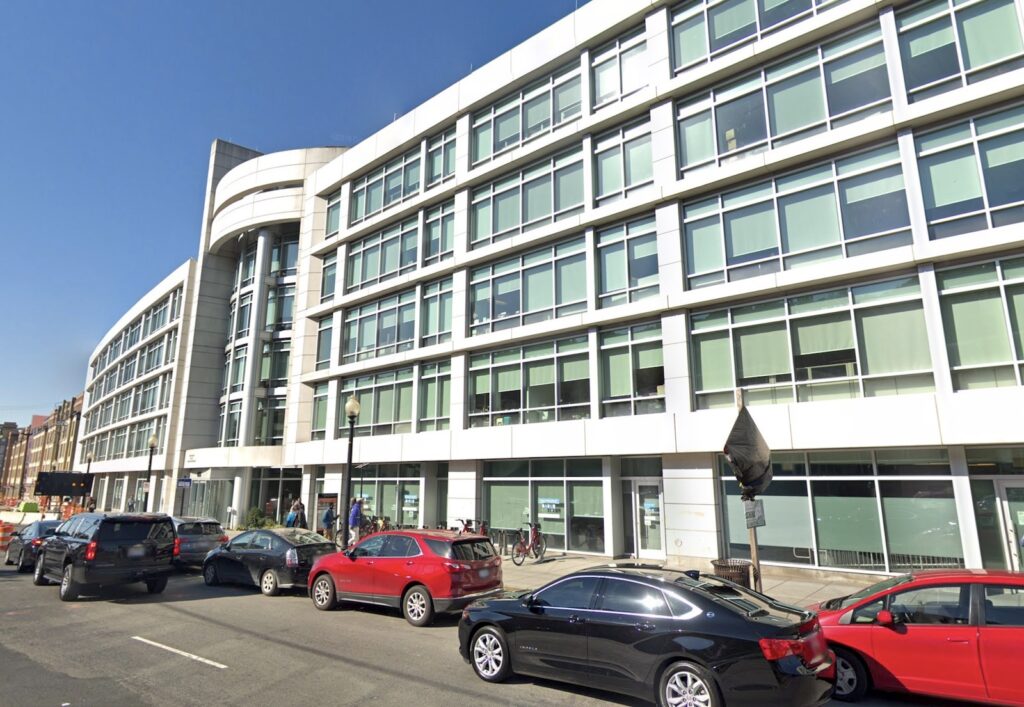A small crowd of employees from WMATA and DC Circulator gathered in the heavy rain in downtown D.C. on March 17 to demand equal pay and benefits for all the city’s transit workers.
The protestors donned neon yellow work vests and held umbrellas and union signs as they chanted outside a hotel near Metro Center, while members and representatives from their union negotiated with the private contractor that sets the wages for employees of the DC Circulator bus system.
Even as most of the city’s transit workers are members of a local chapter of the Amalgamated Transit Union (ATU), known as Local 689, they receive different pay and benefits depending on the agency operating the transit service. For instance, an interstate compact between the D.C. municipal government, and the Maryland and Virginia state governments determines the wages for WMATA workers. By contrast a private contractor sets the pay and benefits D.C. Circulator workers.
Shameka Harris, a train operator for WMATA said she helped organize the protest as an act of solidarity with her fellow transit workers not receiving the same compensation plan.
“They don’t get paid enough to keep them out of poverty,” Harris told Street Sense Media.
According to a DC Circulator recruiter who spoke with Street Sense Media, the starting pay for DC Circulator drivers is $18.54 per hour. Health insurance and a 401(k) retirement plan is included in their benefits package.
The starting pay for a Metro bus driver is $25 per hour. Included in the benefits package for Metro workers is medical and dental insurance, paid time off, life insurance, and a retirement plan.
In 2018, the District Department of Transportation (DDOT) awarded the DC Circulator bus system contract to RAPT Dev, a multinational company based in France. The contract replaced the city’s previous contract with First Transit, another multinational transit corporation.
Harris believes that the contract is inherently unfair, since it pays workers less than other Metro transit workers would earn for the same job.
Patricia Conner, an organizer who led the chants at the event, also works for WMATA. She stood with a megaphone in the middle of the workers leading them in a call and response:
“Who runs this city?”
“We run this city!”
After the protestors had been chanting for around half an hour outside, one of the members from the hotel staff demanded that the workers move out from under the awning, where they were seeking temporary cover from the rain.
Brian Wivell, the Political and Communications Director of ATU Local 689 spoke with the hotelstaff briefly and the protesters agreed to move down the block.
When Street Sense Media asked Wivell about the protest, he emphasized the broader implications of the demonstration for workers in the region.
“We’re all in one union, this is all one struggle across the entire region and we’re trying to make it so that everyone has equal pay for equal work,” Wivell said.
Kenneth Hall has been a D.C. Circulator bus driver for the past five years. Before that, he was a Metro employee for 15 years, working at different times as a bus driver, mechanic and station manager.
Hall said he was not happy with his benefits or his wages as a D.C. Circulator worker. He also expressed frustration with the conditions of buses.
“(The buses) cut off multiple times during the day, we have breaker problems on the bus, we have cracked windshields, we have air leaks, we have hot buses in the summertime, cold buses in the winter, no defrosters, windshield wipers not working properly, the list just goes on and on,” Hall said in an interview with Street Sense Media.
In 2016, DDOT published a 45-page audit of the DC Circulator bus system conducted by Transit Resource Center that reported “an exceptionally high number of defects” and general maintenance and safety neglect. Out of the 42 buses that the audit evaluated, they found 40 to contain at least one critical defect “that should render the bus out of service until repaired.”
The protest notably comes only a day after D.C. Mayor Muriel Bowser presented her budget proposal for the 2023 fiscal year. The budget included $102 million over the next six years to “continue a transformative plan to make bus transit faster and more reliable.”
The union that organized Thursday’s protest criticized the proposal in a tweet.
“DC Mayor’s FY2023 budget proposal calls for modernizing non-auto mobility, with large investments in bus infrastructure. That’s all important, but [the] proposal doesn’t list any expanded investments in DC Circulator workforce! Circulator workers are demanding equal pay for equal work,” the tweet said.








